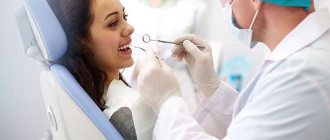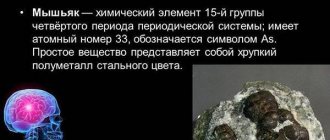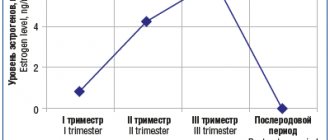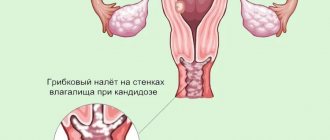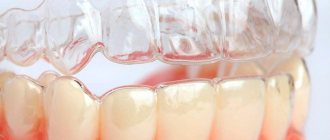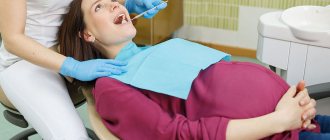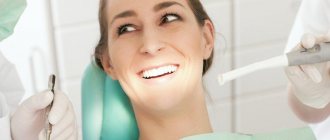Dental treatment during pregnancy: anesthesia
Can pregnant women have their teeth treated?
What dental procedures can be done by pregnant women?
Anesthesia during pregnancy
Dental treatment and lactation
The birth of a baby is an important event in the life of every woman. In order for everything to go well and the child to be born healthy, it is necessary to prepare for this in advance, including sanitizing the mouth. However, there are situations when a woman finds out about her interesting situation when her teeth and gums are in unsatisfactory condition. What to do?
Articaine/ultracaine (ubistezin, septanest) (c68), IgE
Articaine is classified as a 5th generation anesthetic used for conduction and infiltrative anesthesia, mainly in dentistry. As a local anesthetic, articaine, better known as ultracaine, can cause an allergic reaction.
In the group of drug allergies, it is customary to pay special attention to anesthetics, antibiotics, and NSAIDs, since these drugs most often cause certain side effects in the form of allergic phenomena. In this case, Ultracaine is least likely to cause the development of allergies, but if this happens, the manifestations are usually local - itching of the skin, rash, redness in the area where the drug was administered. Severe allergic manifestations, such as anaphylactic shock and angioedema, are practically excluded. However, people suffering from an increased immune response, having a burdened allergic history, namely those suffering from atopic dermatitis, food allergies, hay fever, bronchial asthma, are more likely to experience side effects of the necessary anesthesia. Therefore, in such cases, it is better to assess in advance the degree of risk of developing a response to the administration of drugs by taking a blood test for an allergy to articaine
/ultracaine.
There are 4 types of allergic reactions, but only 1 type or an immediate reaction, which includes anaphylactic shock, is manifested by the appearance of class E immunoglobulins in the blood. This type is quite common, an example of which can be various dermatitis in response to consumption or contact with an allergen. Typically, such reactions develop quite quickly, which is where the name “immediate type” comes from. Thus, to the introduction of anesthesia, a response in the form of a series of reactions can develop quite quickly. In the case of ultracaine administration, the development of anaphylactic shock is practically excluded, which made it possible to introduce this drug into widespread practice, making it the drug of choice for conduction and infiltrative anesthesia in dentistry.
We should not forget about the mechanism of the immune response. Thus, sensitization occurs at the first contact of the body with an allergen, in response to which antibodies are produced. When you meet again, you can observe clinical manifestations of the development of an allergic reaction, because the allergen in this case enters an already sensitized body and is attacked by antibodies. Immunoglobulin E is necessarily produced upon the first contact with an allergen, being a link in the chain of development of the immune response.
When can pregnant women have their teeth treated?
Pregnancy can be roughly divided into three periods (trimesters). Dental treatment can be carried out in the second trimester - it is considered the safest for procedures.
During the first and third trimester, it is better to conduct preventive examinations and treatment planning. It is better to postpone basic dental treatment during pregnancy and a complex of professional hygiene until the second trimester, and if possible, wait until childbirth.
Unfortunately, it is not always possible to follow these recommendations. There are times when emergency intervention is necessary, for example, in the treatment of acute diseases that are accompanied by acute pain and discharge of pus.
Early and late dental treatment
Pregnancy is a difficult and very important period for a woman’s health. And very often, thinking about the unborn child, the mother forgets about herself, in particular about the health of her teeth. Against the background of hormonal changes and changes in the immune system during pregnancy, many chronic diseases can worsen, including diseases of the teeth or oral mucosa.
And the development of infection can lead to the entry of dangerous bacteria into the blood, which complicate the course of pregnancy and can harm the body of the expectant mother and her baby. This poses a particular danger during the period when the placental barrier is not yet fully formed, i.e. in the first weeks of the gestation period. Therefore, it is absolutely necessary to treat your teeth during pregnancy! But on the other hand, treatment often uses strong anesthetics and antibiotics, so the dentist has to carefully balance the therapeutic effect of the chosen drug with its risk to the child.
What to do to avoid problems?
We would like to remind you once again that in order to avoid the need for dental treatment during pregnancy, which is a potentially dangerous situation during this period (or at least reduce the likelihood of dental problems), it is very important to perform a complete sanitation of the oral cavity in preparation for pregnancy. this important stage, in advance.
And after conception, carefully observe the hygiene of your teeth and the entire oral cavity: brush your teeth promptly and carefully, using toothpastes and rinses approved during pregnancy, reduce the amount of food that is dangerous to your teeth, chew more carefully, consult with your doctor about what vitamins to take to avoid calcium deficiency, destructive to teeth.
Procedures that are acceptable during this period
Unfortunately, not everything can be foreseen and not prepared for everything in advance. Therefore, at the first sign of dental problems, you should consult a doctor without waiting for acute pain to occur, because both the developing infection and the pain itself are very dangerous for the health of the unborn child.
If necessary, the following procedures can be carried out:
- treatment of diseases such as caries, periodontitis, pulpitis, periodontitis – i.e. all those that are associated with the emergence and development of a source of infection, with the risk of dangerous microorganisms and toxins entering the blood; of course, depulpation should be carried out without the use of arsenic,
- removal of a tooth that cannot be treated (for example, it is severely destroyed, or the root has been damaged, an area of inflammation or a large cyst has appeared), or is in severe pain,
- perform prosthetics - only when it is required for normal nutrition of the mother and the inability to postpone the procedure,
- professional teeth cleaning, tartar removal, etc.
But such manipulations as removal of wisdom teeth, correction of bite defects, implantation, surgical operations and other similar procedures are best postponed until later. In general, it is necessary to take into account that, if possible, it is better not to carry out any dental treatment at all during pregnancy in the early stages (in the first trimester), until the fetus and placenta are fully formed. The second and third trimesters are more suitable.
1st trimester of pregnancy
The entire period of pregnancy is traditionally divided into three parts (trimesters), according to the main stages of development of the unborn child. The first trimester is the most crucial; it is at this stage that the fertilized egg is implanted, the placenta and embryonic organs are gradually formed, so any medical interventions, incl. Dental treatment in the first trimester of pregnancy carries serious risks.
In the first trimester (up to 12 weeks) planned sanitation is not indicated, help is only for acute pain, because the unborn child is developing organs, the placenta is not yet developed (i.e. there is no proper protection of the fetus from negative factors), the woman often experiences toxicosis , at 8-9 weeks there is a danger of spontaneous abortion. Remineralizing therapy and professional teeth cleaning, removal of hard deposits, and oral hygiene without the use of ultrasound are allowed.
2nd trimester of pregnancy
In the second trimester (from 13 to 24 weeks), treatment of oral diseases is considered safer. The placenta already reliably protects the child, toxicosis and the risks of abortion are behind us, the woman can remain in the dental chair for a long time. The following manipulations can be performed: professional cleaning of hard and soft dental plaque, treatment of caries and its complications.
Most doctors agree that the second trimester for dental treatment during pregnancy is the most relatively safe period. Nevertheless, you need to pay the most serious attention to the choice of medications and painkillers. Lidocaine and novocaine are extremely undesirable.
Treatment in the 3rd trimester
In the third trimester (from 25 weeks until childbirth), dental care is provided only according to strict indications (if the woman’s general condition may worsen). By the end of pregnancy, many women experience shortness of breath, tachycardia, and decreased blood pressure; when reclining in a chair, such phenomena can cause significant discomfort and even lead to a worsening of the condition (the uterus compresses the inferior complete vein).
During this period, the body is more sensitive to medications, the woman becomes anxious and cannot stay in the dental chair for a long time. So dental treatment during pregnancy in the 3rd trimester is possible only up to 34 weeks. At 36-37 weeks, only emergency intervention is performed, because... during this period, treatment can provoke premature birth.
Anesthesia during pregnancy
Many people are interested in the question: is anesthesia allowed for pregnant women during dental treatment? Modern anesthetics, such as Ultracaine, will not harm the baby. Lidocaine has not been used during pregnancy for a long time.
Some expectant mothers think that dental treatment is best done without anesthesia, but this is not true. Fear during the procedure and pain have an impact on the emotional state, which negatively affects the condition of the fetus. As for general anesthesia during pregnancy, it is strictly prohibited for women expecting a baby.
Tooth extraction during pregnancy
It is not advisable to undergo tooth extraction during pregnancy. This is always associated with a heavy burden, both psychological and emotional, as well as physiological - after all, this is a surgical operation. In addition, with such an operation there is a high probability of infection and the development of inflammation, which may require the use of antibiotics, the use of which is extremely undesirable during pregnancy.
Therefore, planned extractions (for example, wisdom teeth) are not carried out during this period, and only emergency extractions are performed, associated with severe acute pain, dangerous inflammatory processes, fracture of the root or neck of the tooth, the formation of a large cyst (more than 1 cm) or a purulent focus of inflammation.
Is it possible to take an X-ray of a tooth?
A lot of questions arise about whether it is possible to take dental x-rays during pregnancy. In the first trimester, X-rays are prohibited. Dental X-rays in the early stages of pregnancy pose a high risk of dangerous effects on the woman’s body and the developing fetus. In the second and third trimester, x-rays can be taken (preferably radiovisiography, characterized by lower radiation intensity) using a protective apron and according to strict indications.
Dental treatment and lactation
Breastfeeding mothers often experience calcium deficiency, which affects dental health. Is it possible to treat teeth while breastfeeding? Will this affect the baby's health?
Dental treatment during lactation is mandatory. Moreover, modern dentistry offers gentle anesthesia methods that do not affect the child’s body. Since some medications are contraindicated for nursing mothers, please inform your doctor about your situation before treatment.
And remember that prevention is the key to the health of your teeth, so do not forget to visit the dentist every six months to check your oral cavity and, if necessary, carry out treatment at an early stage. This will save you time and money.
Dental treatment during lactation is mandatory. Moreover, modern dentistry offers gentle anesthesia methods that do not affect the child’s body. Since some medications are contraindicated for nursing mothers, please inform your doctor about your situation before treatment.
And remember that prevention is the key to the health of your teeth, so do not forget to visit the dentist every six months to check your oral cavity and, if necessary, carry out treatment at an early stage. This will save you time and money.
Ultracain® D-S (Ultracain® DS)
The drug is intended for use in the oral cavity and can only be injected into tissues where there is no inflammation.
It is impossible to inject into inflamed tissues.
The drug cannot be administered intravenously. In order to avoid accidental release of the drug into the blood vessels, an aspiration test (in two stages) should always be performed before its administration.
The main systemic reactions that may develop as a result of accidental intravascular administration of the drug can be avoided by following the injection technique: after an aspiration test, slowly inject 0.1-0.2 ml of the drug, then, no earlier than 20-30 seconds later, slowly inject the remaining dose of the drug. The injection pressure should correspond to the sensitivity of the tissue.
For anesthesia during uncomplicated extraction of teeth in the upper jaw in the absence of inflammation, it is usually sufficient to create a depot of the drug Ultracaine®
D-S in the area of the transitional fold by introducing it into the submucosa from the vestibular side (1.7 ml of the drug per tooth). In rare cases, an additional injection of 1 ml to 1.7 ml may be required to achieve complete anesthesia. In most cases, this eliminates the need for a painful palatal injection. When removing several adjacent teeth, the number of injections can usually be limited.
For anesthesia for incisions and sutures in the palate to create a palatal depot, about 0.1 ml of the drug is required for each injection.
In the case of removal of mandibular premolars in the absence of inflammation, mandibular anesthesia can be dispensed with, since infiltration anesthesia provided by an injection of 1.7 ml per tooth is usually sufficient. If in this way it was not possible to achieve the desired effect, an additional injection of 1-1.7 ml of anesthetic should be performed into the submucosa in the area of the transitional fold of the mandible on the vestibular side. If in this case it was not possible to achieve complete anesthesia, it is necessary to conduct a conduction block of the mandibular nerve.
When treating cavities and grinding teeth for crowns, with the exception of the lower molars, depending on the volume and duration of treatment, the administration of the drug Ultracaine is indicated®
D-S in the area of the transitional fold on the vestibular side in a dose of 0.5-1.7 ml per tooth.
When performing one treatment procedure, adults can be administered articaine in a dose of up to 7 mg per 1 kg of body weight. It was noted that patients tolerated doses up to 500 mg (corresponding to 12.5 ml of solution for injection) well.
For pediatric patients (over 4 years of age), the minimum doses necessary to achieve adequate anesthesia should be used, the dose of Ultracaine®
D-S is selected depending on the age and body weight of the child, but the dose of articaine should not exceed 7 mg per 1 kg of body weight (0.175 ml/kg). The use of the drug in children under 1 year of age has not been studied.
For elderly patients and all patients with severe renal and hepatic insufficiency, it is possible to create increased plasma concentrations of articaine. For these patients, the minimum doses necessary to achieve a sufficient depth of anesthesia should be used.
